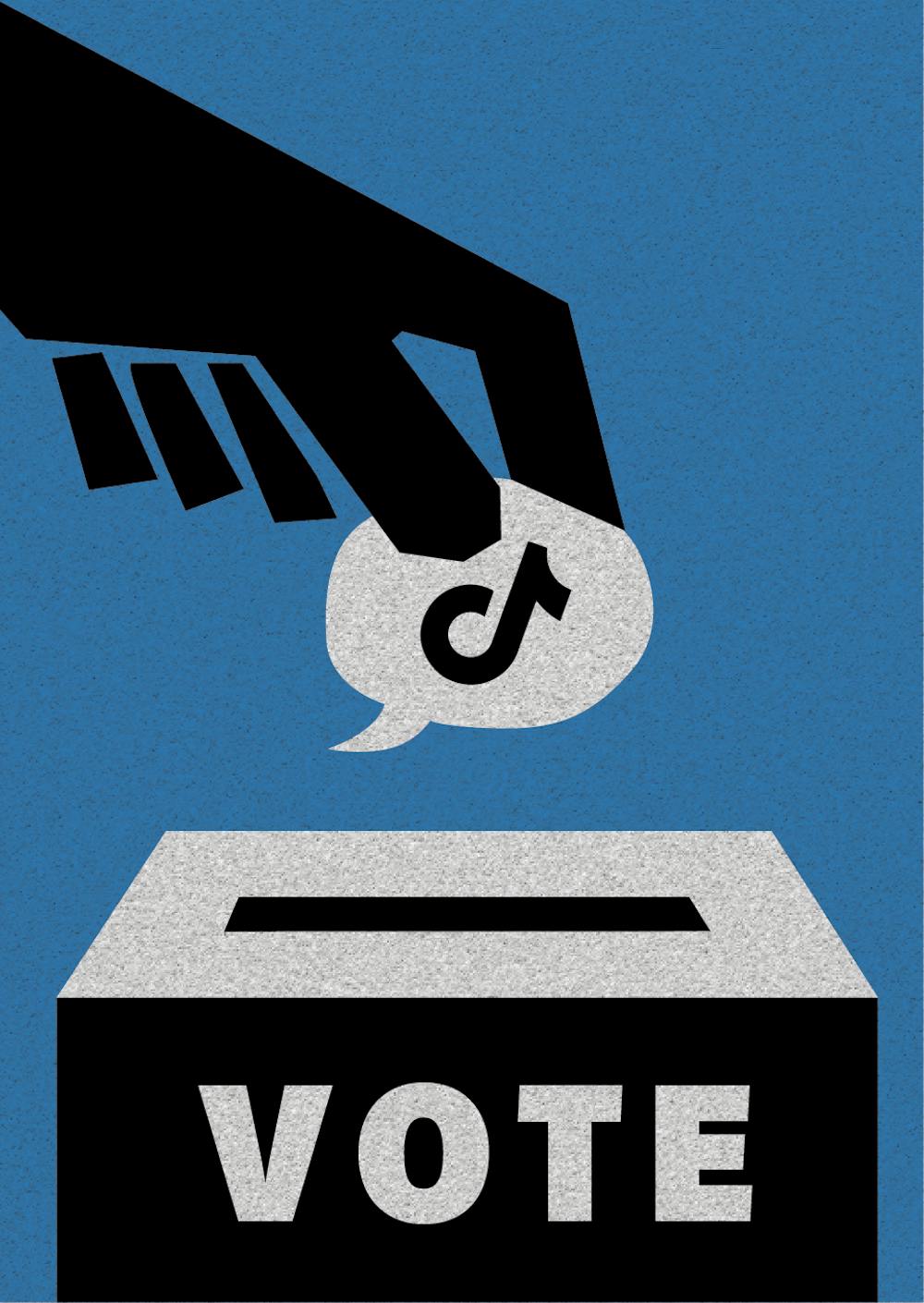I’ve never liked TikTok or Snapchat or any other social media that is hyper-popular in the United States. One reason for this is that I grew up with different socializing tools and in my teenage years, Instagram and Viber took the lead for young Eastern Europeans. Despite this, social media wasn’t very important, since everyone lived so close to each other and prioritized in-person interactions.
COVID-19 drastically affected our outlook on the world, and by the time the pandemic was over, I found myself in the U.S. surrounded by TikTokers and Snapchat users. Almost every friend I have at Miami University has a TikTok account and is actively participating in TikTok culture either by creating content and engaging audiences or passively scrolling through others’ content.
Still, we don’t understand the importance of a tool, especially social media in today’s world, until we feel its existence is threatened. Cue the idea of banning TikTok in the United States. Now, the U.S. government wants to tell my friends that they are not going to have access to the platform anymore because TikTok is a national security issue.
And while I might not care much about the faith of TikTok, I undoubtedly care a lot about the faith of freedom of expression in the U.S., and the mission of public universities who daily are pressured to make politically driven decisions to uphold a certain budget threshold and stay in the game. The government and universities have forgotten their mission is to serve students and their needs. Telling students and young people that they can change the world and then taking away their tools is outrageous.
The world’s future is in the hands of educators and those who take it upon themselves to make knowledge and the truth accessible to others. Public universities, including Miami, need to be on the front end of the change-making process and not shy away from certain topics just because the polarized environment in the U.S. has made them controversial.
During spring break, I had the opportunity to professionally meet with a couple of Ohio Senator Sherrod Brown’s interns and legislative aides. During our conversation, TikTok bans were brought up. Like from a book, they shared their “deep concerns” about the platform, that it is owned by the Chinese company ByteDance and that the U.S. has attempted to buy this company multiple times, but the Chinese refused.
I asked them how the Senator plans to address freedom of speech concerns and other aspects of the TikTok issue but no concrete plan was mentioned, except that the senator works in favor of the “American people.”
As I walked through Washington D.C., I couldn’t get this conversation out of my head. Who are the American people? Do they want a TikTok ban? I knew that at some point this issue would come to our backyard as students. Auburn University and the University of Texas, Oklahoma and Alabama all banned TikTok from their campus Wi-Fi networks.
This doesn’t really solve anything since many students will just transfer to their personal networks and continue using the app, but the mere attempt to restrict students from using their voice is daunting. While no one wants to be subject to identity theft and have their information scrutinized, it is the implication of a ban being the only solution and the targeting of China that are concerning.
If a ban is completely institutionalized, researchers, educators and those interested in understanding the dynamics of TikTok that can make it safer are cut out of the picture. Also, nobody has mentioned how banning TikTok in public universities could shift the rhetoric on Chinese, Asian and Asian American students. Stereotypes persist and while U.S. relations withChina are messy and complicated, the life of students eager to learn and earn a degree is not.
Chinese students’ numbers in the U.S. have decreased significantly and Miami has suffered that loss too. In Ohio, this shift was best illustrated by Senate Bill 83. According to the Washington Post, this paranoia about Chinese students usually means extreme scrutiny during visa consultations and application processes, being turned away at the border or airport and treated as an inferior human being. In this sense, the TikTok ban could only further the harmful stereotypes for all Asians in the U.S.
Public universities should always be the first to protect their students and give them a platform for their voices to be heard. This is a fair game.
Enjoy what you're reading?
Signup for our newsletter
Otherwise, all of us living in the U.S. and hoping for a brighter future will see the door close right after we enter it. Not because we don’t have access to TikTok and can’t endlessly scroll through social media for hours, but because it only takes one calculated attack on freedom of expression for many others to follow.
Anastasija Mladenovska is a sophomore political science, finance and Russian, East European & Eurasian studies triple major from Macedonia. She is involved with the Honors College and Scholar Leaders. She also volunteers for the League of Women Voters of Oxford.




